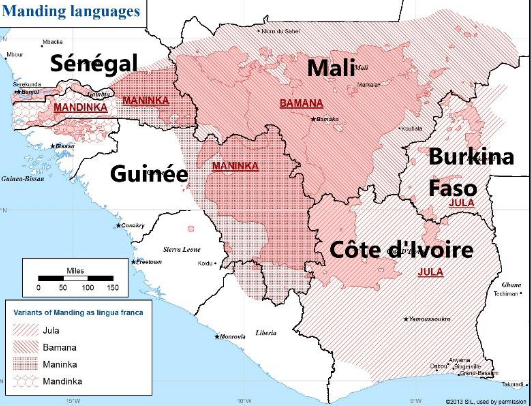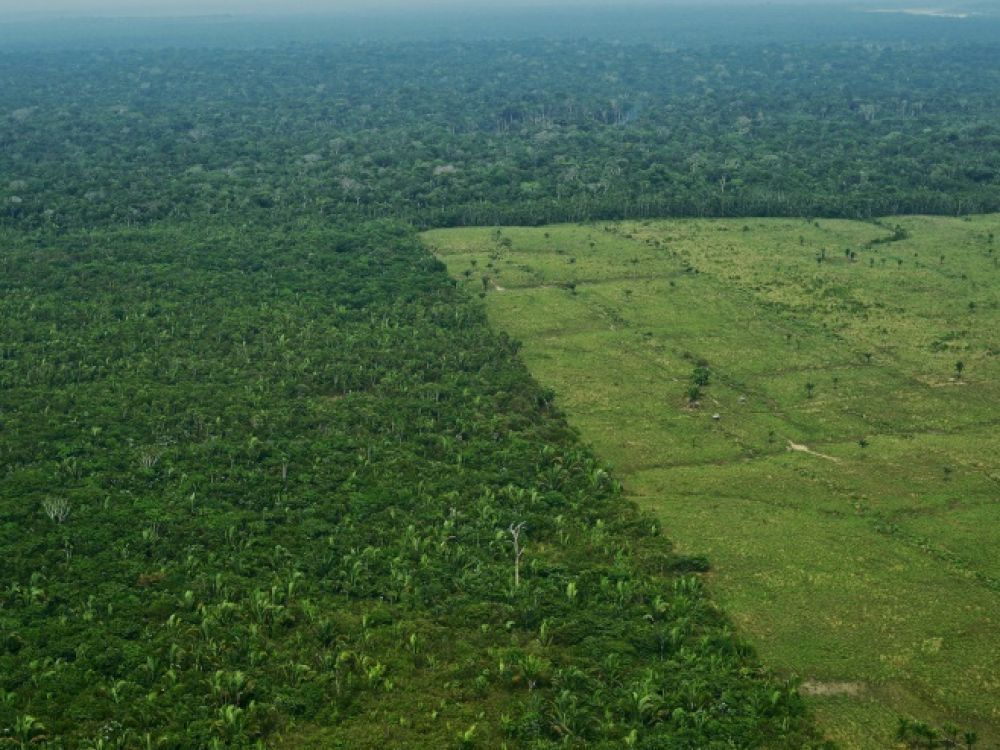
Since the signing of the Dayton Accords in 1995, Bosnia and Herzegovina has been operating within a fragile institutional balance marked by persistent ethno-political tensions. These agreements, negotiated at the end of the Bosnian War (1992–1995) under the auspices of the United States, ended the conflict but also established a complex state structure. The country is divided into two main entities: the Federation of Bosnia and Herzegovina (with a Bosnian and Croatian majority) and the Republika Srpska (with a Serbian majority), each with a high degree of autonomy, under the authority of a weakly integrated central state and supervised by an international High Representative. While this architecture has enabled a return to peace, it remains a source of instability, perpetuating communal divisions and institutional deadlocks.
Since April 2025, the situation has worsened considerably, with tensions between the central government and the Serbian entity of Republika Srpska intensifying. The growing authoritarianism of its leader, Milorad Dodik, and his stated willingness to defy common and international institutions have reignited fears of the country’s disintegration. At the same time, Bosnia and Herzegovina is attempting to make progress towards EU membership, while facing major economic and geopolitical challenges. This study analyzes recent political developments since April 2025, the reactions of the international community, the country’s European prospects, and the risks to its stability in the short and medium term.
I) A political crisis reignited by institutional mistrust in Republika Srpska
Since April 2025, Bosnia and Herzegovina has been experiencing an unprecedented worsening of its political crisis. At the heart of this instability is the president of Republika Srpska (RS), Milorad Dodik, an emblematic figure of Bosnian Serb nationalism and a central player in the power struggle between the Serb entity and the central institutions of the state. Already under international fire for several years for his secessionist positions, Dodik crossed a new threshold in February 2025 when he was sentenced to one year in prison and six years of ineligibility by the State Court. The main charge was that he had openly defied the decisions of the High Representative, the authority responsible for overseeing the implementation of the Dayton Peace Agreement.
This conviction, which Dodik perceived as a political act orchestrated by the West and Bosnian institutions dominated, in his view, by Bosnian elites, triggered a radical legislative response. In the weeks that followed, the RS National Assembly passed a series of laws designed to reduce the central government’s influence over its territory. These measures included refusing to recognize the decisions of the High Representative, rejecting the rulings of the Bosnian Constitutional Court, and creating security and judicial structures entirely controlled by the Serb entity.
In practice, this is a further step towards de facto autonomy, if not outright secession. These initiatives immediately prompted a reaction from the central institutions. The State Prosecutor’s Office issued arrest warrants for Dodik and several senior RS officials, accusing them of unconstitutional behavior, obstructing the functioning of institutions, and endangering national unity. Faced with these measures, far from backing down, Dodik redoubled his anti-centralist rhetoric. He publicly rejected the legitimacy of Bosnian state bodies, calling on the “Serbian people of Bosnia” to rally around the institutions of the RS, presented as the sole guarantors of its sovereignty and security. In his speeches, he denounced ongoing foreign interference orchestrated by Western powers and referred to a historic struggle for the emancipation of the Serbian people in the Balkans.
This toxic climate has reignited the inter-ethnic tensions that have weakened Bosnia and Herzegovina for three decades. Meanwhile, some Bosnian Croat leaders, particularly those associated with the HDZ BiH (Croatian Democratic Union of Bosnia and Herzegovina), have expressed tacit support for a redefinition of the country’s institutional balance of power. Their main demand concerns the creation of a “third Croatian entity,” which would allow Croats to have their indipendent territory.
While this idea remains officially marginal in the discourse of the international community, it is gaining popularity in certain cantons with a Croatian majority, particularly around Mostar, where frustration with what they perceive as the domination of Bosnian elites in the Federation is growing.
Conversely, Bosnian leaders, particularly those from the Party of Democratic Action (SDA) and other pro-unitary groups, perceive Dodik’s initiatives, as well as Croatian autonomist ambitions, as an existential threat to the integrity of the Bosnian state. They denounce a coordinated strategy of “de facto partition” which, under the guise of institutional reforms, aims to gradually weaken central structures in order to establish a logic of ethno-national sovereignty. For Bosnians, the authority of the High Representative and the joint institutions is the last bastion against a return to the logic of Balkanization.
This political and identity divide has been accompanied by a clear deterioration in inter-community dialogue. The already fragile mechanisms for inter-ethnic cooperation have now been paralyzed by boycotts, inflammatory statements, and escalating rhetoric. In some mixed regions, tensions are also being felt at the local level: hate speech on social media, incidents in schools, militant mobilization around symbols and commemorative dates. This rise in community tensions has led some observers to fear a return to confrontation, not military confrontation in the immediate term, but institutional and territorial confrontation.
2) International reactions and the role of external actors
Faced with escalating political and institutional tensions in Bosnia and Herzegovina since spring 2025, the international community has responded with increased vigilance. The gravity of the situation, marked by the questioning of the Dayton Peace Agreement and the separatist ambitions displayed by Republika Srpska, has reignited concerns about the stability of the entire Western Balkans, a historically sensitive and geopolitically strategic region.
NATO quickly expressed its commitment to the territorial integrity of Bosnia and Herzegovina and to respect for the institutions established under the Dayton Agreement. In a statement issued in May 2025, the Atlantic Alliance reaffirmed that “any attempt to undermine the common state structures constitutes a threat to regional stability,” adding that no security vacuum would be tolerated. Although Bosnia and Herzegovina is not a member of NATO, the organization maintains active cooperation with Sarajevo, and its deterrent posture in the Balkans is seen as a counterweight to competing influences in the region, particularly Russia.
The European Union has also stepped up its involvement. Operation EUFOR Althea, mandated by the United Nations Security Council, has been reinforced with the arrival of additional troops in sensitive areas, particularly in Banja Luka and certain mixed communities. The objective of this military presence is twofold: on the one hand, to prevent any violent unrest, and on the other, to ensure the effective implementation of the provisions of the Dayton Agreement, including those relating to free movement, judicial cooperation, and law enforcement. At the same time, Brussels reiterated that respect for the rule of law and common institutions was an essential prerequisite for any progress in Bosnia and Herzegovina’s EU accession process.
In stark contrast, Russia has adopted a diametrically opposed position. True to its strategic alliance with Milorad Dodik, whom it has supported politically and diplomatically for several years, Moscow has denounced what it calls “neo-colonial interference” by the West in Bosnia’s internal affairs. The Kremlin has criticized both the role of the High Representative, whom it has not recognized since Christian Schmidt’s appointment without Security Council approval, and the attitude of the EU and NATO, which it accuses of seeking to impose centralization contrary to the spirit of Dayton. In this sense, Russia is using the current crisis as leverage in its global standoff with the West, particularly in the post-Ukrainian context.
3) Prospects for European integration and economic challenges
Despite an increasingly unstable political climate, Bosnia and Herzegovina took a symbolic step forward in March 2025 by officially beginning negotiations to join the European Union. This progress sends a strong signal from Brussels, which intends to maintain a credible European perspective for the Western Balkans, based on both geopolitical and security considerations. For Bosnia and Herzegovina, it is also an attempt to break out of institutional isolation and reactivate a reformist dynamic capable of meeting the expectations of a population often disillusioned by the slow pace of democratic progress.
However, this turning point was only possible after the adoption of several key reforms demanded by the EU, particularly in the areas of anti-money laundering, budgetary transparency, and migration management. Progress has also been noted in judicial cooperation and public administration reform. These technical advances demonstrate the willingness of certain political elites and civil society actors to meet European standards, despite persistent obstacles linked to institutional fragmentation.
Yet, internal political tensions and separatist initiatives led by Republika Srpska are seriously undermining integration efforts. The desire of certain central institutions to disengage, the challenge to the authority of the High Representative, and the refusal to cooperate with the state judiciary are weakening Sarajevo’s credibility in the eyes of European authorities. In this context, the European Union, while keeping the door open, is making its support conditional on effective reforms and real political stabilization. This position of “conditional engagement” aims to avoid a purely formal accession, which could reproduce the deadlocks already observed in other member countries. Economically, the situation remains worrying.
Growth remains weak and unevenly distributed among entities, with structurally high unemployment, particularly among young people. Many graduates leave the country each year in what is now known as the “Bosnian brain drain.” This human and intellectual hemorrhage further weakens the country’s capacity for economic transformation.
Major infrastructure projects supported by the European Union, such as the Pan-European Corridor 5c (linking Budapest to the Adriatic coast via Sarajevo) and investment programs in renewable energy, are struggling to get off the ground. The lack of coordination between the different levels of government, obstacles related to tendering processes, and disputes over budget allocations are significantly slowing down their implementation. Geopolitical tensions surrounding energy dependence, particularly on Russia, further complicate the country’s energy strategy, which is struggling to diversify its sources while meeting the EU’s climate targets.
Ultimately, Bosnia and Herzegovina’s European integration appears uncertain at present. While the opening of negotiations represents a historic opportunity, it remains largely dependent on the resolution of the current political crisis. Until the Bosnian state is able to speak with one voice on fundamental issues of governance, sovereignty, and inter-ethnic cooperation, the prospects for accession will remain theoretical. Europe’s gamble can only succeed if the national pact is rebuilt, which means moving beyond ethno-nationalist thinking to build a common project for development, justice, and prosperity.
4) Scenarios for change and challenges for the future
Bosnia and Herzegovina is currently at a critical crossroads in its contemporary history. Torn between the temptation to retreat into its identity and the prospect of lasting integration into the European space, the country is caught between internal pressures and external geopolitical influences.
On the one hand, the opening of negotiations for accession to the European Union represents a historic opportunity. If it succeeds in stabilizing its institutions, strengthening the rule of law, and improving cooperation between its constituent entities, Bosnia and Herzegovina could finally overcome the obstacles inherited from the Dayton Accords. This would require far-reaching constitutional reform, guaranteeing both the equality of citizens and the recognition of community specificities, within a functional and modern institutional framework. In this scenario, European support, both financial and political, could act as a catalyst for economic modernization, investment in infrastructure, and the restoration of confidence in public institutions.
On the other hand, the unilateral actions of Republika Srpska—enacting laws that violate the Constitution and openly defying the central authorities—pose a direct threat to the country’s integrity. Russia’s overt support for these separatist dynamics, combined with a sense of weariness among part of the population towards a paralyzed state, fuels fears of a gradual disintegration of the state fabric. Such a scenario would exacerbate the fragmentation of the country, potentially paving the way for localized political and even security confrontations, and definitively compromising any progress towards European integration.
Against this backdrop of polarization, the general elections scheduled for October 2026 will be a decisive turning point. They will gauge popular support for different visions of the future: a common state oriented towards Europe or autonomous, even secessionist entities supported by external powers. But beyond the election results, it is the ability of Bosnian political forces to resume inter-community dialogue, demonstrate responsibility, and build lasting compromises that will determine the outcome of this critical phase.
In the short term, the urgent priority is to preserve constitutional order and prevent any violent escalation. This requires effective coordination between Bosnian institutions, support from international partners, and increased pressure on actors who disrupt stability. But in the longer term, it is an inclusive national project, based on shared citizenship, education, common memory, and economic development, that will enable Bosnia and Herzegovina to undergo profound transformation.
Bosnia and Herzegovina is going through a period of deep uncertainty, torn between institutional weaknesses, persistent inter-ethnic tensions, and geopolitical pressures. Faced with rising separatist rhetoric and widespread mistrust, the country’s future will depend on its ability to restore national dialogue, reaffirm its commitment to Europe, and strengthen the rule of law. More than ever, the stability of Bosnia and Herzegovina appears to be a strategic issue for the entire Balkans and for Europe.
Matys K.


